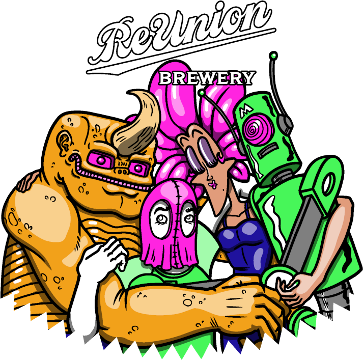Our Mission
To inspire and activate positive community growth through the arts
Using the transformative power of the Arts, The Englert Theatre helps our community understand the past, deeply live the present, and create a vibrant and inclusive future. We believe the arts can change the world—by connecting with individuals at their core, by connecting people with one another, and by providing opportunities for people to experience and be challenged by new ideas and perspectives. These connections help our community collaborate and innovate to build a future that is inclusive and vibrant creatively, culturally, and economically.
Our Vision
To build and sustain a thriving arts-centered community
To create transformational change, a sustained effort is needed. The Englert Theatre is committed to ensuring stability with respect to finances, facilities, and organization. We recognize that for the arts to flourish and create the transformational impact we envision, a safe and interconnected ecosystem is required—artists and arts workers, education and workforce development, partners and collaborators, diversity, and inclusion. We believe that, through building this ecosystem, the arts will come to be viewed as essential to the well-being of our community—its heart.
Our Values
Note: In 2022, we underwent a strategic planning process to evaluate who we are today and where we want to be in the future. This process was facilitated by Jennifer Horn at Bluebird Sky Solutions. Our vision, values, and strategic areas of work were developed through this process.
Our Commitment to Diversity
A core question drives our work at the Englert: How can we contribute to making the Iowa City area a place where people feel like they are seen, are heard and can thrive? Or put another way: how can the work we do help our community feel like a home for everybody who lives here?
We embrace our role as an arts organization in the systems of education, economics, justice, and culture. We understand that our work partially determines how welcoming, fair, and positively interconnected the residents of our town are. Diversity exists here in many forms–across ages, socioeconomic backgrounds, ranges of ability, and increasingly in the representation of gender, race, and ethnicity–although we must routinely question whether this place is truly equitable and inclusive to people of diverse perspectives, backgrounds, and experiences.
To support diversity at the Englert and in the community, we intentionally work toward equity and inclusion in all areas of our organization, including:
- Our administrative design and practices (for staff and board)
- Our programmatic vision and guidelines
- Our guiding documents (mission, vision, values)
Our History
On September 26, 1912, husband and wife William & Etta Englert launched an institution when they opened The Englert Theatre in downtown Iowa City, replacing what had once been a livery stable. They built the theater to rival the finest stage and movie houses throughout the Midwest and to establish a vibrant community gathering space for local and regional citizens.
Vaudeville acts from across the world performed on the stage and films – still an emerging art form at that time – were shown on the theater’s state-of-the-art projection equipment. These exciting events welcomed community members into The Englert’s 1,071 seats. Above the theatrics in the main hall, William and Etta resided on the theater’s second floor and provided housing for traveling artists on the third.
In 1920, William Englert passed away at 46 years old. Following his death, business partners A.H. Blank (from Des Moines) and Nate Chapman purchased the business in 1921. Chapman, who had been based in Des Moines, had moved to Iowa City just a year earlier when he and Blank purchased the storied Garden Theater cinema, which would later become The Varsity and then The Astro. The Blank and the Chapman families, through a line of committed descendants, would go on to steward the Englert’s existence for the remainder of the century.
After Nate Chapman died in 1925, his wife Dora continued to own and operate the theater alongside A.H. Blank. Dora’s brother, Al Davis, also assisted with managing the facility. On February 13, 1926, a fire nearly destroyed the Englert. Firemen fought to save the building as the blaze tore through the roof. Dora Chapman was there – as was Etta Englert – and she would later recount the scene to her grandchildren – Nathan, Katherine, and Barbara Chapman.
Despite $125,000 worth of damage to a property that had cost only $60,000 to build 14 years before, the theater’s benefactors restored the building with an eye to the ornate aesthetic tendencies of the 1920s. In particular, significant investment from A.H. Blank made this rebirth possible. From the ashes, the Englert returned to the Iowa City community.
In time, the venue became a full-time movie house. In the 1980s the singular theater space was subdivided into two small-screen spaces. Likewise the interior had been updated with gypsum board, paneling, carpeting, and acoustic ceilings. The owners during this period were Ansel and Marvin Chapman (sons of Dora) and Mike Blank (son of A.H. Blank) of Central States Theater Corporation.
As the end of the century approached, Mike Blank, in his 90s, sought to sell the business while he was still alive. He conferred with his partners, the Chapmans (whose various family members had migrated away from the core of Iowa City), about selling the Englert. Seeking to honor Mike’s wishes, the Chapmans agreed. In 1999, after nearly 80 years of caring for the building, they closed and sold the Englert.
A bar owner initially purchased the theater and planned to turn it into a club. However, a group of local citizens envisioned an opportunity to renovate and restore the theater to its original purpose: a performing arts and community gathering space for the people of Iowa City. This group of inspired locals persuaded the City of Iowa City to purchase the theater and hold it in trust until funds could be raised for a newly formed nonprofit entity to purchase and renovate the space.
Over the next five years, this group worked diligently to rebuild the Englert as a premier arts venue and a hub in the Iowa City cultural scene. In part — under the banner of “Save the Englert” — the group secured funds to restore the Englert to its 1920’s glory. The names of contributors are memorialized throughout the building: a capital campaign wall in the lobby, plaques around the theater, and on the backs of seats in the main hall.
On December 4, 2004, the Englert returned to the community with its first live performance in over 40 years. Since that time, the Englert has become a leader in the Midwestern arts scene through its ongoing programming, partnerships with the community and the University of Iowa, its production of two innovative festivals – Mission Creek and Witching Hour, its commission work with local and international artists, its commitment to the preservation of history, and celebration of the evolving cultural diversity of the Iowa City area.













